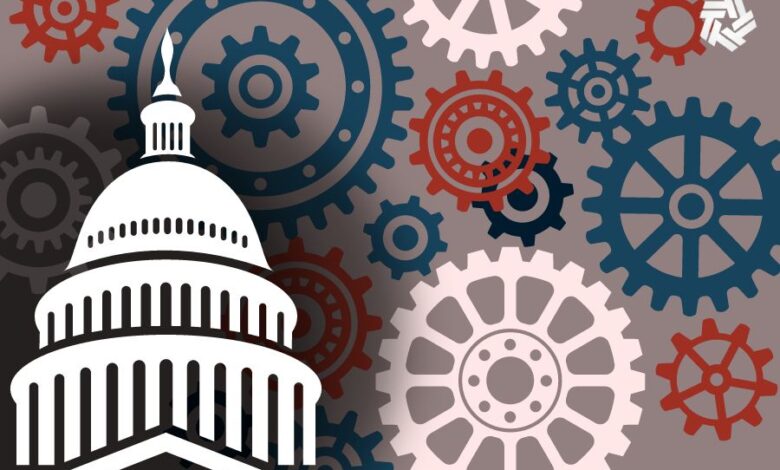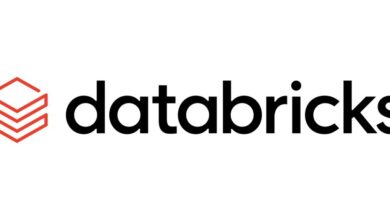White House-backed bill to preserve pandemic analytics tools introduced in House

Data analytics tools and the expertise developed by federal watchdogs to fight fraud in COVID-19 emergency programs will live on permanently to tackle more government spending, if a bipartisan bill makes its way through Congress.
A bipartisan bill, backed by House and Senate lawmakers, as well as the White House and federal watchdog agencies still investigating pandemic fraud, would preserve analytics tools built by the Pandemic Response Accountability Committee (PRAC), a governmentwide council of inspectors general, and would repurpose those tools use to uncover more fraud in federal spending.
The Government Spending Oversight Committee Act would give agency IGs the tools they need to combat fraud across more than 10 major funding bills, including pandemic-related spending.
House Oversight and Accountability Committee Ranking Member Jamie Raskin (D-Md.) introduced the legislation on Monday.
“Congress has a duty to be a responsible steward of the hard-earned taxpayer dollars used to provide support to American families and businesses through federal programs,” Raskin said in a statement to Federal News Network. “This new legislation will codify existing anti-fraud data capabilities in the federal government, build oversight tools that help agencies prioritize fraud reduction, and ensure federal programs support those who need and qualify for them.”
The bill would create a Government Spending Oversight Committee (GSOC) to succeed the PRAC, when it sunsets in September 2025, to manage those tools and continue its work of combatting fraud in federal programs.
The bill would “provide analytical products to agencies, in coordination with the inspector general involved, to promote program integrity, prevent improper payments, and facilitate verification efforts to ensure proper expenditure and utilization of covered funds.” It would also allow the GSOC to share staff experts with federal IG offices to better combat fraud.
The committee, like the PRAC, would include IGs from the departments of Labor, Treasury, Veterans Affairs, Commerce, Justice, Defense Education, Homeland Security and Transportation, as well as the Small Business Administration.
After Congress created the PRAC in 2020, agency IGs behind the group realized the Pandemic Analytics Center of Excellence (PACE), its suite of fraud-fighting data tools used to root out COVID-19 program fraud, should find a permanent home before the PRAC sunsets.
Lawmakers never preserved the analytics tools pioneered by PRAC’s predecessor, the Recovery Accountability and Transparency Board, which oversaw stimulus spending following the 2008 Great Recession.
The PRAC’s data analytics tools have flagged nearly $2 billion dollars in pandemic fraud so far.
Senate Homeland Security and Governmental Affairs Committee Chairman Gary Peters (D-Mich.) and Sen. Mitt Romney (R-Utah) introduced companion legislation in the Senate that advanced out of the committee last week.
Comptroller General Gene Dodaro, the head of the Government Accountability Office, and PRAC Chairman Michael Horowitz, endorsed the bill when Peters and Romney introduced it.
Dodaro said in a statement that the legislation incorporates GAO’s recommendations to help the federal government better combat fraud, waste, and abuse in its programs and spending — and called it a “step in the right direction in enhancing the accountability and transparency over federal funds on behalf of the American people.”
PRAC Chairman Michael Horowitz said the funding “is critically important to preserve and enhance the PRAC’s data analytics function that has demonstrated its ability to prevent fraud and improper payments, and to assist law enforcement in pursuing billions of dollars in fraud.”
“Over the past three years, the Pandemic Response Accountability Committee and its data analytics center have demonstrated the ability to prevent fraud and improper payments, and to assist law enforcement in pursuing billions of dollars in fraud,” Horowitz said. “If the PRAC’s data analytics center had been in place in March 2020 at the outset of the pandemic, we would have been able to do critical data analysis upfront before payments were made to help prevent the billions of dollars of pandemic relief funds that were wasted through improper payments and fraud.”
The fiscal 2024 spending deal passed by Congress recently gave the PRAC $2 million to further develop its data analytics capabilities.
The Biden administration, in a fact sheet on April 9, applauded legislative efforts to preserve and expand pandemic-era tools for federal watchdogs to combat fraud. The White House called for the extension of the PACE in March 2023.
“The PACE’s cutting-edge analytics capabilities, developed and refined during the pandemic, provide analytic, audit, and investigative support to the inspector general community. The president supports a permanent anti-fraud data and analytics capability analogous to the PACE for the IG community, and given the ever-evolving nature of fraud, strongly supports expanding this effort in the future to focus increasingly on up-front detection and prevention of fraud, covering all Federal spending,” the White House wrote.
The White House also endorsed the Fraud Prevention and Recovery Act from Peters, Senate Judiciary Committee Chair Dick Durbin (D-Ill.) and Senate Finance Chair Ron Wyden (D-Ore).
Among its provisions, the bill would provide $300 million to triple the number of COVID-19 Fraud Strike Force teams created by the Justice Department, give agency IGs more funding to investigate pandemic-related fraud and raise the statute of limitations for pandemic unemployment insurance fraud to 10 years.
The White House also supports upcoming legislation to make Treasury’s Do Not Pay platform access to the Social Security Administration’s Death Master File permanent.
Do Not Pay’s access to SSA’s authoritative death data, which is valuable to prevent benefits payments to deceased individuals, expires in 2026.
Copyright
© 2024 Federal News Network. All rights reserved. This website is not intended for users located within the European Economic Area.



